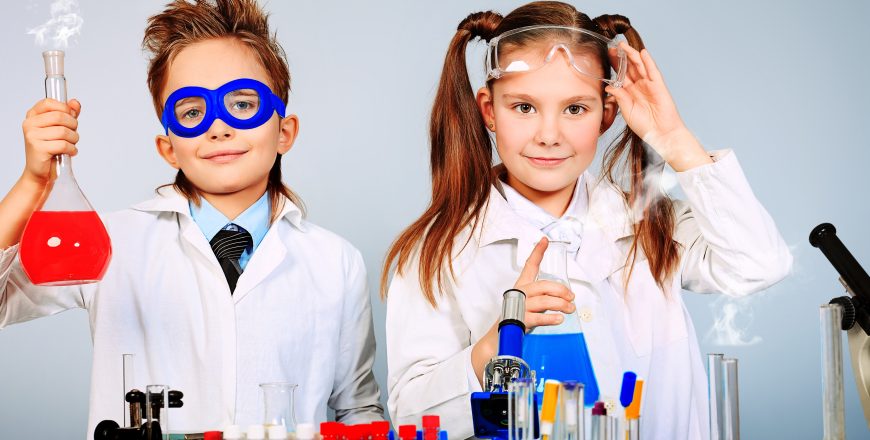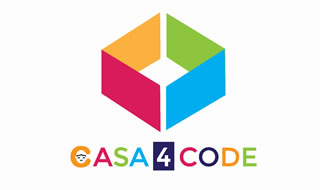Sciences for Upper Grades

SCIENCE FOR THE HIGHER GRADES – CHEMISTRY PHYSICS, BIOLOGY & EARTH SCIENCES GRADES 10 -12
Welcome to the CASA science Zone! As you know, Science is the systematic study of the structure and behavior of the physical and natural world through observation, experimentation, and the testing of theories against the evidence obtained. We employ the rich Canadian curriculum and other adapted elements of British and Australian Science curriculum to create a unique blended teaching. This is where all the Science learning happens!
Course Overview:
SCIENCE FOR HIGHER GRADES: This is a fully built in-house curriculum package of all the science courses and subjects needed by students from Grades 10 to 12 to excel as a Champ! The teaching of Science 10, 20, and 30 is carefully tailored in addition to other global curriculum elements to prepare students with opportunities to develop knowledge, skills and attitudes that are needed to explore interest and prepare for further education and careers. Our seasoned tutors are rated amongst the best 2% globally and they operate from different locations. We present Science in meaningful context – providing opportunities for learners to enjoy the process of Science, its applications and implications while examining related problems and issues. Each student is assessed to fit into the learning smoothly. For Science 10, we introduce learners to the biological, chemical, physical and Earth sciences and more. Students are drilled with chemical reactions, plants multicellular processes and energy conservation and conversion. We cover chemical reactions, types of chemical reactions, balancing chemical reactions, writing word equations, predicting reactions, molar mass and Avogadro’s number calculations and many more. In Science 20, students apply all acquired knowledge to real-life problems. They investigate Newton’s laws of motion, properties of hydrocarbons and the chemistry of solutions, changes in life forms and earth’s structure amongst other topics. Science 30 covers sustainability of energy resources, sharpen scientific skills and explore a wide range of scientific concepts to strengthen their foundations in science. They investigate human systems and health, and environmentally sustainable solutions for meeting global energy needs. Students will be exposed to important and interconnecting skills while being taught in a fun way.
Learning Goals:
SCIENCE 10: Major topics covered
Science 10 students are introduced to the biological, chemical, physical and Earth sciences. Learners study chemical reactions, cellular and multicellular processes that occur in plants, the conservation and conversion of energy, and Earth’s climate. They explore how energy is transformed.
· Matter
· Atoms and the Periodic Table
· Elements Compounds and Mixtures
· Chemical Bonding
· Chemical Reactions
· Stoichiometry
· States of Matter
· Thermodynamics
· Acids and Bases
· Organic Chemistry
· Nuclear Chemistry
· Students will gain and have a detailed understanding of states of matter, chemical reactions, the periodic table and more
· Students will understand balancing different types of chemical reactions, and Stoichiometry
· Students will be thoroughly tutored on Thermodynamics and be immersed into all its elements of heat, work, temperature, relationships with energy, radiation and physical properties of matter
· Learners will be taught organic chemistry of hydrocarbons, saturated and unsaturated hydrocarbons, alkynes, alkenes, alkynes and aromatics hydrocarbon as well as its sources and industrial uses
· Students are trained to understand nuclear structure, equations, radioactive decay, biological effects of radiation and more
· Students will be detailed on Acids and bases, definition, valency and valence electrons, types of reactions and calculation around Acids and Bases. Litmus Indicators and other indicators will be discussed
Students will participate in class quizzes and class projects
SCIENCE 20 & 30
Students in Science 20 extend their study of the biological, chemical, physical and Earth sciences and apply their knowledge to real-life problems. They investigate Newton’s laws of motion, the properties of hydrocarbons and the chemistry of solutions. They examine evidence of how Earth’s surface, climate and life forms have changed and continue to change and cycle in response to natural and human actions
CHEMISTRY:
Chemistry 20:
· Students explore matter and how it changes in order to understand the natural world
· Learners will investigate the chemical properties of solutions, and they apply their understanding of chemical bonds to explain ionic and molecular compounds
· This course explains the behavior of gases, using the gas laws, and also work to balance chemical equations.
Physics 20:
· Physics 20 students investigate the motion of objects
· Students apply Newton’s law of universal gravitation to astronomical observations
· Learners also describe how energy is transmitted by mechanical waves
· Learners are taught how waves relate to medical technologies, industry and musical instruments.
Biology 20:
Biology 20 students examine the interactions of living systems to better understand the constant flow of energy and the cycling of matter
Students explore the functioning of the human body and the mechanisms that work to maintain balance in organisms, in ecosystems and in the biosphere
Science 30
· Sustaining energy resources in Science.
· Students sharpen their scientific skills and explore a wide range of scientific concepts to strengthen their foundations in science
· Learners investigate human systems and health, and environmentally sustainable solutions for meeting global energy needs
· Tutors help the learners examine the impacts of chemicals in society and the environment
· Students examine the properties and applications of electromagnetic energy
Chemistry 30:
· Students examine and quantify how thermochemical and electrochemical systems use or provide energy
· Learners explore common organic compounds–those that contain carbon–and how they are used in technological applications and everyday life
· Students also investigate acid-base reactions and interpret how they eventually reach equilibrium.
Physics 30:
· Physics 30 students consider historical experiments and explore why the model of the atom has changed as a result of experiments and observations of natural phenomena
· Students apply a quantitative approach to describe conservation of momentum in an isolated system
· Learners investigate applications and implications of electric and magnetic forces and fields
· They also use the concept of wave-particle duality to understand both wave and photon behavior of electromagnetic radiations.
Biology 30:
· Biology 30 students conduct laboratory work and investigate how human systems sense and respond to the environment. Several topics are embedded
· Learners explore human reproduction and development at the cellular level and at the organism level
· Students investigate the basic structure and role of DNA and investigate the inheritance of traits in individuals and populations
· They will analyze the changes in populations resulting from natural and human-induced changes in the environment and discover the dynamism in living systems.
Our tutors and coaches are well vetted, and seasoned with many years of classroom experience teaching students of different ages and backgrounds. We adopt the easiest ways and methodologies for our learners.
Class projects will bring all the learning home
Students Supply List:
Students will require a Laptop, good internet connection, headphones, pen and paper.
Other needed resources will be shared in class.



